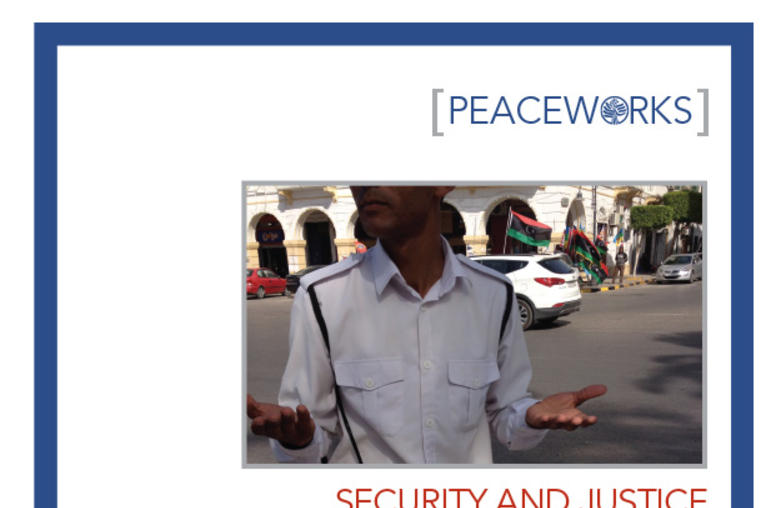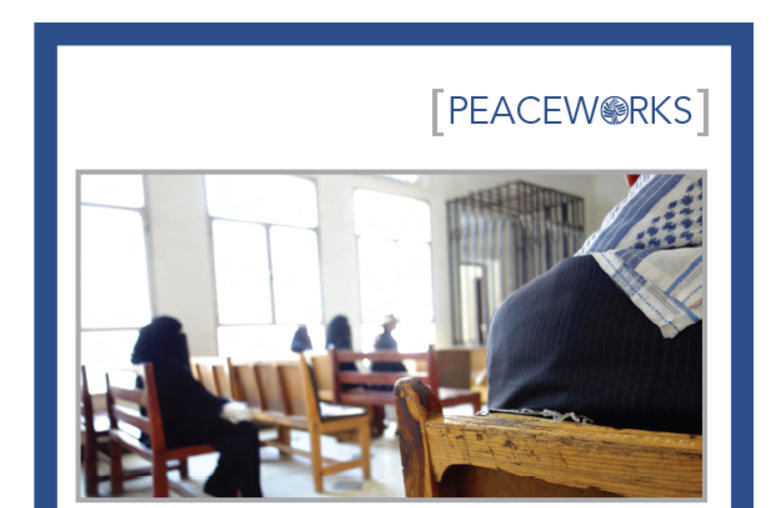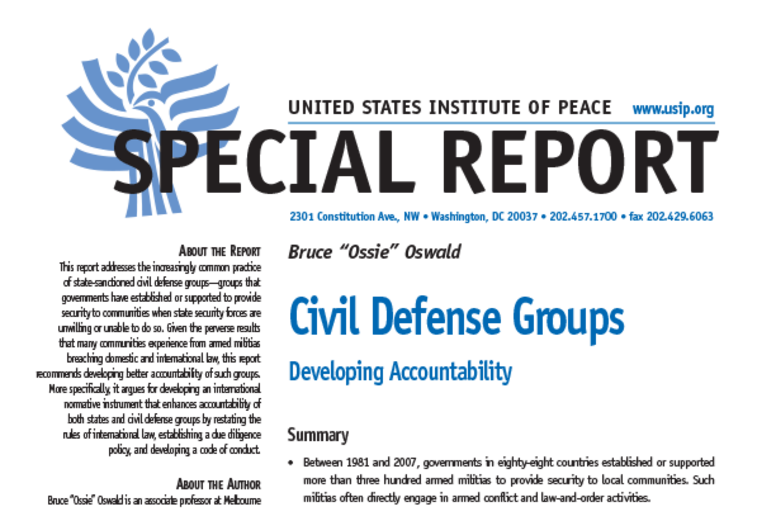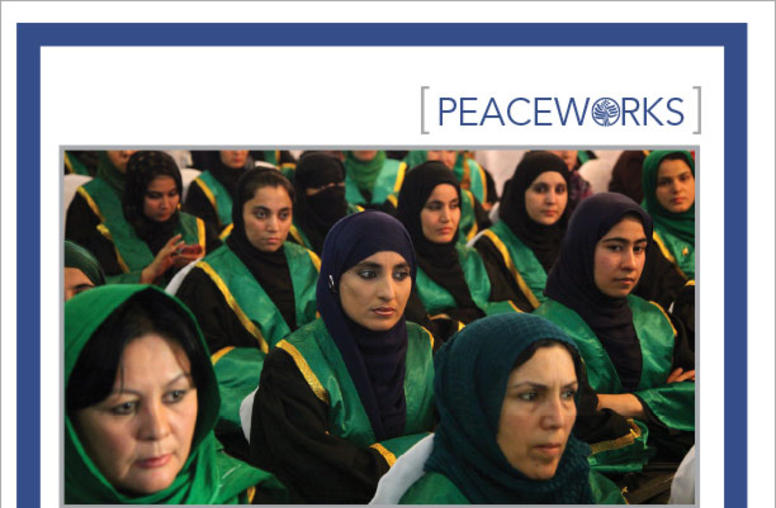Securing the Future
A Primer on Security Sector Reform in Conflict Countries
Security sector reform (SSR) is essential in the transition from war to peace in conflict zones and is a topic of urgent importance. This report discusses definitions of SSR, the field's emergence, and challenges in current SSR implementation, among other topics.
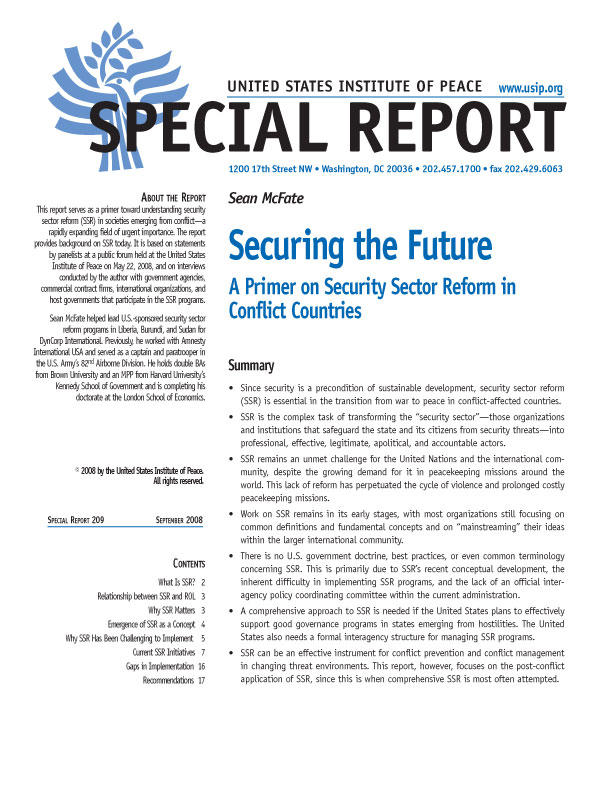
Summary
- Since security is a precondition of sustainable development, security sector reform (SSR) is essential in the transition from war to peace in conflict-affected countries.
- SSR is the complex task of transforming the “security sector”—those organizations and institutions that safeguard the state and its citizens from security threats—into professional, effective, legitimate, apolitical, and accountable actors.
- SSR remains an unmet challenge for the United Nations and the international community, despite the growing demand for it in peacekeeping missions around the world. This lack of reform has perpetuated the cycle of violence and prolonged costly peacekeeping missions.
- Work on SSR remains in its early stages, with most organizations still focusing on common definitions and fundamental concepts and on “mainstreaming” their ideas within the larger international community.
- There is no U.S. government doctrine, best practices, or even common terminology concerning SSR. This is primarily due to SSR’s recent conceptual development, the inherent difficulty in implementing SSR programs, and the lack of an official interagency policy coordinating committee within the current administration.
- A comprehensive approach to SSR is needed if the United States plans to effectively support good governance programs in states emerging from hostilities. The United States also needs a formal interagency structure for managing SSR programs.
- SSR can be an effective instrument for conflict prevention and conflict management in changing threat environments. This report, however, focuses on the post-conflict application of SSR, since this is when comprehensive SSR is most often attempted.
About the Report
This report serves as a primer toward understanding security sector reform (SSR) in societies emerging from conflict—a rapidly expanding field of urgent importance. The report provides background on SSR today. It is based on statements by panelists at a public forum held at the United States Institute of Peace on May 22, 2008, and on interviews conducted by the author with government agencies, commercial contract firms, international organizations, and host governments that participate in the SSR programs.
Sean McFate helped lead U.S.-sponsored security sector reform programs in Liberia, Burundi, and Sudan for DynCorp International. Previously, he worked with Amnesty International USA and served as a captain and paratrooper in the U.S. Army ’s 82nd Airborne Division. He holds double BAs from Brown University and an MPP from Harvard University ’s Kennedy School of Government and is completing his doctorate at the London School of Economics.
